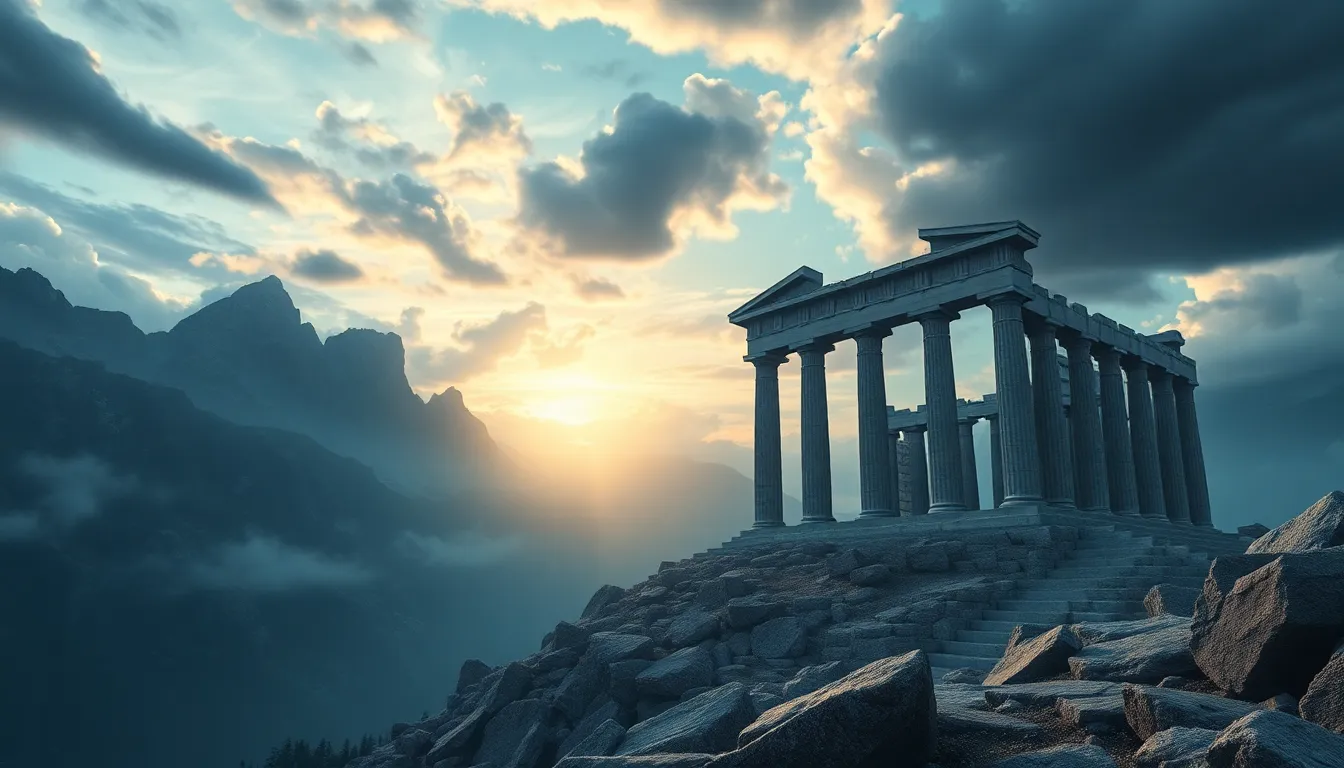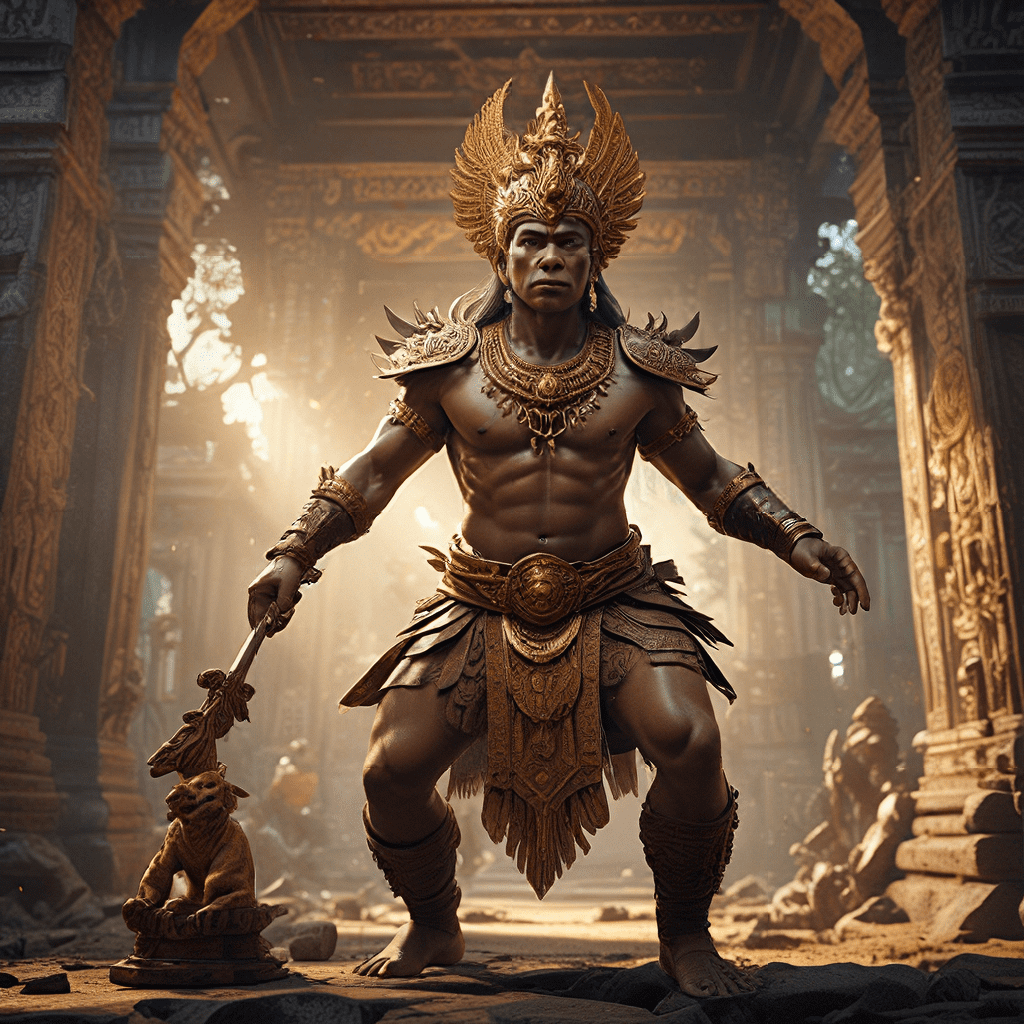The Myth of the Isle of the Gods: Olympus in Ancient Greece
I. Introduction
Mount Olympus, the majestic peak that towers over northern Greece, is not just a geographical landmark but a symbol of divine power and mythological grandeur. In ancient Greek culture, Olympus was revered as the home of the gods, a place where divine beings resided and ruled over mortals. The significance of Olympus goes beyond its physical presence; it embodies the ideals, beliefs, and cultural narratives of the ancient Greeks.
This article aims to explore the myths, symbolism, and cultural impact of Mount Olympus, shedding light on its historical context, the pantheon of deities associated with it, and its lasting legacy in both ancient and modern times.
II. Historical Context of Mount Olympus
Mount Olympus is located in Macedonia, Greece, and stands at 2,918 meters, making it the highest mountain in the country. Its imposing presence and varied ecosystems contributed to its significance in Greek mythology. The mountain was believed to be shrouded in clouds, reinforcing the notion that it was a realm separate from the mortal world.
Early references to Olympus can be found in ancient texts such as Homer’s “Iliad” and “Odyssey,” where it is depicted as the dwelling place of the gods. Over time, the mythological status of Olympus evolved from a mere mountain to a divine abode, influencing the religious practices and beliefs of the Greeks.
III. The Pantheon of Gods Residing on Olympus
Mount Olympus is home to a pantheon of twelve major deities known as the Olympians. Each of these gods and goddesses played a crucial role in Greek mythology and was associated with various aspects of life and nature.
- Zeus – The king of the gods, ruler of Mount Olympus, and god of the sky and thunder.
- Hera – The queen of the gods, goddess of marriage and family, and the wife of Zeus.
- Poseidon – The god of the sea, earthquakes, and horses, brother of Zeus.
- Athena – The goddess of wisdom, warfare, and craftsmanship, born from Zeus’s forehead.
- Apollo – The god of the sun, music, and prophecy, known for his beauty and skill.
- Artemis – The goddess of the hunt, wilderness, and childbirth, twin sister of Apollo.
- Aphrodite – The goddess of love and beauty, often depicted as enchanting and irresistible.
- Ares – The god of war, known for his tumultuous and aggressive nature.
- Hephaestus – The god of fire and craftsmanship, known for his skills in metalworking.
- Demeter – The goddess of the harvest and agriculture, associated with fertility.
- Dionysus – The god of wine, festivity, and ecstasy, representing pleasure and revelry.
- Hermes – The messenger of the gods, god of trade, and guide to the underworld.
The relationships among these gods were complex, often characterized by jealousy, rivalry, and love, creating a rich tapestry of myths that were essential to Greek culture.
IV. Myths and Legends of Olympus
Creation myths surrounding Mount Olympus often depict it as a primordial place, the stage for the cosmic battle between the Titans and the Olympians known as the Titanomachy. This battle established the rule of Zeus and his siblings over the universe, marking a significant transition in Greek mythology.
Notable stories involving the gods often illustrate their interactions with humanity, such as:
- The tale of Prometheus, who defied Zeus by giving fire to mankind.
- The story of Hercules, who undertook impossible tasks to achieve immortality.
- The adventures of Persephone, whose abduction by Hades led to the changing of the seasons.
These myths not only entertained but also served to explain natural phenomena and societal norms, reinforcing the cultural values of ancient Greek society.
V. Olympus as a Symbol of Power and Authority
In addition to its mythological significance, Olympus represented divine rule and justice. It was seen as a metaphor for an ideal society, where order and harmony prevailed under the leadership of the gods.
The political implications of the Olympus myth were profound; rulers and leaders often drew upon the divine authority of the Olympians to legitimize their power. The concept of a ruling deity who oversaw justice and morality resonated deeply in the governance of city-states.
VI. Artistic Representations of Olympus
The influence of Olympus on ancient Greek art and literature is evident in various forms of artistic expression. Depictions of the gods and mythological scenes can be found in:
- Pottery, where black-figure and red-figure techniques illustrated stories of the gods.
- Sculptures, such as the famous statue of Zeus at Olympia, one of the Seven Wonders of the Ancient World.
- Frescoes in palaces and temples, showcasing divine interactions and mythological events.
Notable works capture the essence of Olympus, immortalizing the grandeur of the divine realm and its inhabitants.
VII. The Cultural Legacy of Olympus in Modern Times
The legacy of Olympus extends beyond ancient Greece, permeating contemporary literature and media. Modern interpretations of Greek mythology often draw inspiration from the tales of the Olympians, showcasing their enduring fascination.
Examples of Olympus in modern culture include:
- Books like “Percy Jackson & The Olympians” series by Rick Riordan, which reintroduces Greek mythology to a new generation.
- Films and television series that explore the lives and adventures of the gods, blending mythology with modern storytelling.
- Art and literature that continue to be influenced by the themes of power, love, and conflict found in Olympian tales.
VIII. Archaeological Significance of Mount Olympus
Archaeological excavations have uncovered significant findings related to the worship of the gods on Mount Olympus. Historical sites linked to the cult of the gods include temples, altars, and inscriptions dedicated to various deities.
Ongoing interest in Olympus among archaeologists and historians reflects its importance as a religious and cultural center in ancient Greece, providing insights into the spiritual life of the Greeks.
IX. The Role of Olympus in Religion and Worship
Festivals and rituals dedicated to the Olympian gods were integral to ancient Greek religion. Events such as the Olympic Games, held in honor of Zeus, exemplified the connection between athletic competition and divine favor.
The impact of Olympus on ancient Greek spirituality was profound, influencing various aspects of daily life, from agriculture to politics. Comparisons with other mythological sites, such as Delphi and Eleusis, highlight the unique position of Olympus in the pantheon of Greek religious practices.




